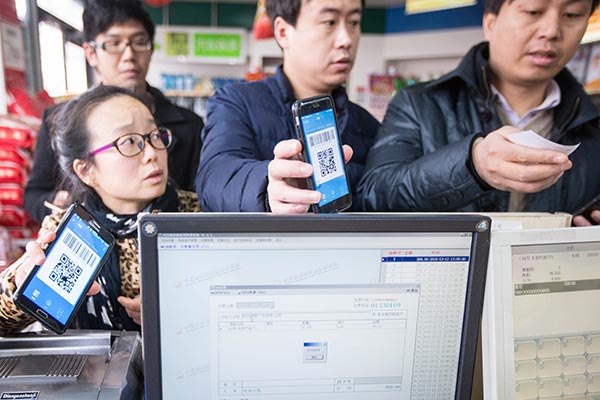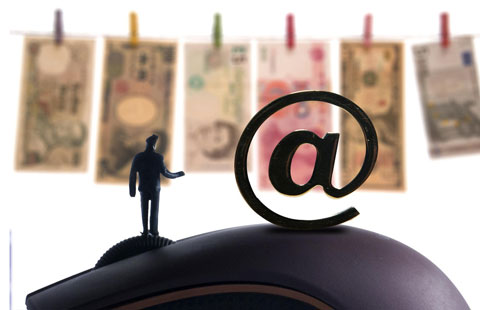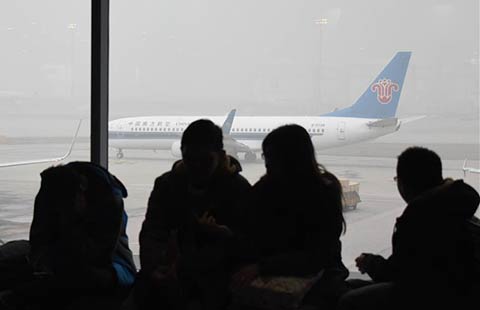Alipay holds on to the Lion's share
By Meng Jing and Ma Si (China Daily) Updated: 2015-12-28 08:00
 |
|
Bargain-hunters flash the Alipay Wallet QR codes on their smartphones at a Hangzhou supermarket checkout to avail 10 percent discount on their shopping.[Provided to China Daily] |
Money can make the world go around, and when people see the chance to save some while paying bills, it can make them kick old habits like cash or cards, and embrace change in the form of mobile wallets.
That's what shopper Guo Cuiling, 55, did on December 12 at a supermarket in Beijing, to claim a discount of 50 yuan ($7.72) that on offer for users of Alipay Wallet, a mobile payment system backed by China's e-commerce giant Alibaba Group Holding Ltd.
The payment process using her smartphone lasted all but a few seconds. The cashier scanned Alipay's QR code on Guo's phone, and presto, her bank account linked to her mobile wallet got debited in a jiffy. Debit cards and credit cards could also be linked to mobile wallets.
"Paying via a smartphone is much more convenient than I'd thought. You don't need to reach for your purse or worry about small change anymore. The obvious downside is that I may overspend before I notice," she said laughing.
Like Guo, many other bargain-hunters used Alipay Wallet on Dec 12. It is a day celebrated as "12-12" shopping festival in China with massive discounts and coupons at restaurants, gas stations, malls, supermarkets, cinemas and what have you, offered by mobile wallet providers such as Alipay, Tencent Holdings Ltd and Baidu Inc.
In 2013, Tencent added a mobile payment feature to its messaging app WeChat that is used by 650 million people in China. According to Alipay, the largest third-party payment solution provider in China, an Alipay Wallet user could have saved up to 500 yuan on that day.
Now that more and more consumers are taking to online payments, the next frontier for electronic payment players is to get people to use their mobile wallets for payments at offline points of sale.
The offline market has even greater potential, said analysts. Agreed the Shenzhen-based Tencent in an e-mail reply to China Daily.
Statistics from iResearch Consulting Group show China's third-party mobile payment transactions in the July-September quarter were worth 2.42 trillion yuan, up 64.3 percent year-on-year.
Ma Tao, an analyst with the Beijing-based Internet consultancy Analysys International, said the majority of the transactions were generated by e-commerce. Alipay accounted for about 70 percent of online payments.
Tencent said in its e-mail: "In China, about 1 billion transactions are made offline every day. About 200 million transactions are made by cards and the other 800 million are made by cash."
Ma said, "However, the offline mobile payment market is still largely untapped in China. And because it is still an evolving market, it is too early to tell which company will be the top dog."
A huge market without a dominant player yet-that is what is luring more and more players into the arena.
- Bets on underdogs may give high returns to investors
- Chinese bargain hunters boost British e-retailers
- Turning on green light for clean cars
- Record number of car recalls in China this year
- Shanghai crabs fill Taiwan farms and dining tables
- Uber-GAC deal to legitimize car-hailing service, boost sales
- China's online retail volume to top other countries: Commerce minister
- Oil prices to remain low well into 2016

















